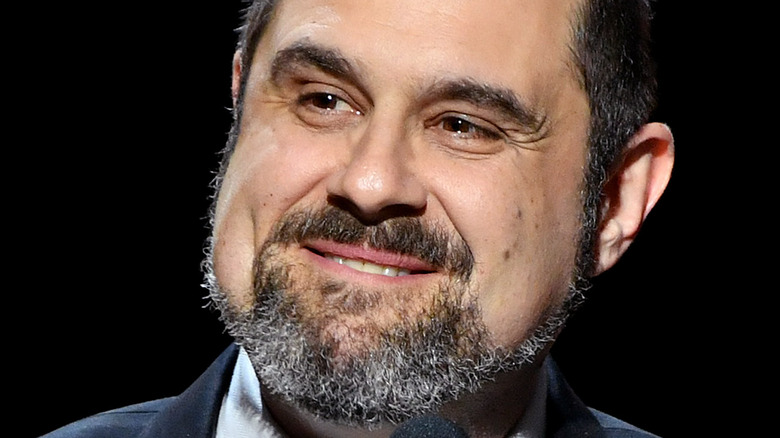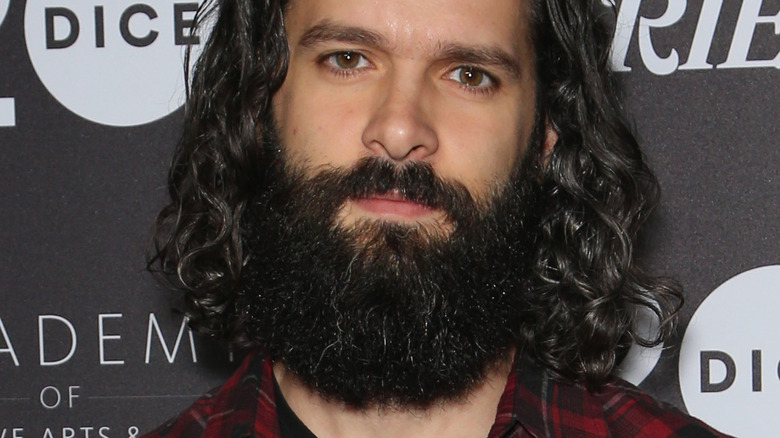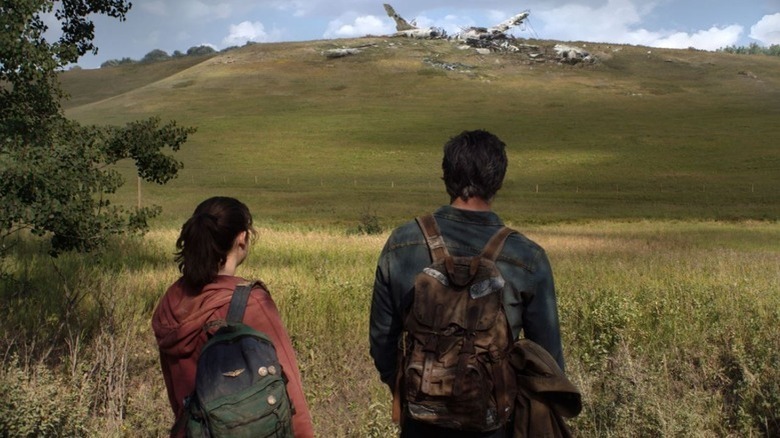Craig Mazin Made Even Neil Druckmann Float With His The Last Of Us Pitch
Video game adaptations have come a long way since the ill-fated "Super Mario Bros." movie in 1993. Granted, universally beloved movies and series of this ilk are few and far between, but Craig Mazin and Neil Druckmann's "The Last of Us" on HBO is already proving to be one of the rare exceptions. "The Last of Us" reviews are all saying the same thing, noting that it's an adaptation befitting of the games, while still working as a captivating TV series.
Based on Druckmann and Bruce Straley's 2013 Naughty Dog game of the same name, "The Last of Us" is a post-apocalyptic tale that chronicles the adventures of Joel (Pedro Pascal) and Ellie (Bella Ramsey) as they trek across harsh terrains of a post-pandemic America. Along the way, they encounter ruthless killers, zombies, and parasitic fungi — as is part and parcel with stories about life after the end of the world as we know it.
Of course, it makes sense that "The Last of Us" was given the adaptation treatment. Shows such as "The Walking Dead" have proven that there's an appetite for post-apocalyptic dramas out there. Furthermore, well-told stories about humanity being wiped out by unexplainable outbreaks resonate harder in these Covid-stricken times. That said, every series begins as an idea that must be sold to a network; fortunately, Craig Mazin's pitch for "The Last of Us" was so good that it blew the minds of HBO's head honchos, as well as the original video game's creator.
Craig Mazin's The Last of Us pitch impressed Neil Druckmann
Craig Mazin is a master when it comes to creating critically acclaimed TV series about traumatic events. He is best known as the mastermind behind "Chernobyl," an HBO miniseries that dramatizes the infamous nuclear disaster that took place in 1986. Heading into "The Last of Us," he already had a successful track record with the aforementioned network, which certainly boosted his chances of bringing this adaptation to life. However, his pitch for "The Last of Us" was so good that it even made the game's creator feel awestruck.
While speaking to HBO Max's "The Last of Us Podcast," Neil Druckmann recalled how the project came to fruition. According to the creator, he offhandedly asked Mazin what an HBO adaptation of "The Last of Us" might look like, not expecting much to come from it. Afterward, Mazin took him to the network's offices and told them that he wanted "The Last of Us" to be his next project and the rest is history.
However, Mazin also had a fully formed idea in his mind at the time. Druckmann recalled Mazin going through the story beat by beat and presenting his vision to the network's top executives. Druckmann offered little input as he felt so moved by Mazin's ideas and trusted the "Chernobyl" creator. HBO and HBO Max Chairman and CEO Casey Bloys was immediately sold on the idea as well, and the series became a reality.
Craig Mazin deviated from The Last of Us source material
While HBO's "The Last of Us" stays fairly true to the game's narrative, Craig Mazin did bring some of his own ideas to the table. The showrunner didn't want to stay true to the timeline of the video game, which begins in 2013 before diving into the future. The HBO series, meanwhile, begins in 2003 before jumping to the present day. However, Mazin had an understandable reason for making this decision.
"I have this thing about jumping into the future," Mazin told Inverse. "I feel like, if I'm watching a show and the year is 2023, and the show takes place in 2043, it's just a little less real. Even if I'm watching a show in 2023 and it takes place in 2016, it's a little less real." At the end of the day, he wanted "The Last of Us" to feel somewhat grounded and relatable to contemporary viewers.
Of course, the HBO series deviates from the game in other ways too, but that's just the nature of adapting anything for television. That said, Mazin defended his decision to take some creative liberties from time to time. "Ultimately, adaptation is all about choices. And we can talk until our faces turn blue about how we make those choices," he told Radio Times. "And there's a lot of math to it. But for me, what it always came back to was, 'What do I love?' What, as a fan, would I be hurt if I didn't see it in the show?"


